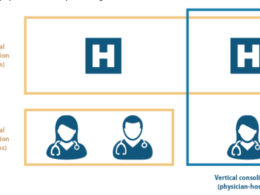the health strategist
institute for strategic health transformation
& digital technology
Joaquim Cardoso MSc.
Chief Research and Strategy Officer (CRSO),
Chief Editor and Senior Advisor
November 14, 2023
One page summary
What is the message?
The American Heart Association’s Scientific Sessions 2023 showcased groundbreaking AI studies heralding a new era in cardiology.
These studies reveal the potential for advanced algorithms to revolutionize heart disease diagnosis, treatment, and monitoring, prompting a paradigm shift in daily cardiology practices.

What are the key points?
1. Accelerating Heart Attack Diagnosis with AI:
- The ARISE trial from Taiwan demonstrated that AI-powered electrocardiogram (ECG) evaluations could reduce the time for diagnosing and treating a heart attack (STEMI) by nearly 10 minutes.
- The AI-ECG algorithm achieved an 88% positive predictive value and a 99.9% negative predictive value, significantly cutting the median time from ECG to cath lab.
- Lead author Chin-Sheng Lin emphasized the potential for AI tools to aid less experienced frontline doctors, ensuring faster treatment and minimizing errors.
2. Voice Monitoring for Heart Failure with Smartphone-based AI:
- Cordio Medical’s HearO system, a smartphone-based speech analysis software, detected key differences in heart failure patients’ voices, predicting worsening symptoms in 76% of cases almost a month before hospitalization.
- While generating some unnecessary alerts, the technology showed promise in providing early warnings and improving patient outcomes in remote monitoring, according to lead author William T. Abraham.
3. Reducing False Alerts with AI in Cardiac Monitors:
- Medtronic’s LINQ II ICM, enhanced with AccuRhythm AI algorithms, demonstrated a more than 91% reduction in false atrial fibrillation alerts, potentially saving physicians over 400 hours annually.
- AI application in device clinics can streamline patient management, offering manageable false alert rates, as stated by lead author Jagmeet Singh.
4. AI-supported Digital Stethoscope for Valvular Heart Disease:
- Eko Health’s SENSORA platform combined with a digital stethoscope achieved a 94.1% sensitivity and 84.5% specificity in identifying valvular heart disease.
- The study emphasized the potential of AI-enabled technology to enhance primary care evaluations for valvular heart disease, addressing the dire consequences of undiagnosed or late diagnoses.
5. AI in Pregnancy-related Cardiomyopathy Detection:
- SPEC-AI Nigeria study showcased AI algorithms working with Eko Health’s digital stethoscopes to detect pregnancy-related cardiomyopathy.
- AI-guided screening doubled the frequency of cardiomyopathy diagnosis compared to traditional methods, highlighting the transformative impact AI can have on maternal outcomes.
Statistics and Examples
- The ARISE trial involved over 43,000 patients and reduced the median time from ECG to cath lab from 52.3 minutes to 43.3 minutes.
- Cordio Medical’s HearO system predicted worsening heart failure symptoms in 76% of patients nearly a month before hospitalization.
- Medtronic’s AccuRhythm algorithms reduced false atrial fibrillation alerts by more than 91%, potentially saving physicians over 400 hours annually.
- Eko Health’s SENSORA platform achieved a sensitivity of 94.1% and specificity of 84.5% in identifying valvular heart disease among 369 patients.
- AI-guided screening in the SPEC-AI Nigeria study doubled the frequency of cardiomyopathy diagnosis during pregnancy.
Conclusion
The AI studies unveiled at the American Heart Association’s Scientific Sessions 2023 present a compelling case for the transformative role of artificial intelligence in cardiology.
These pioneering advancements showcase the potential for AI to not only expedite critical processes such as heart attack diagnosis but also revolutionize patient monitoring, offering early warnings for heart failure and valvular heart disease.
As the medical community explores the integration of AI into daily cardiology practices, the findings suggest a promising future where technology collaborates with healthcare professionals to enhance patient outcomes and revolutionize cardiovascular care.
The demonstrated successes across diverse applications underscore the urgency for continued research, investment, and implementation of AI in cardiology, heralding a new era in cardiovascular healthcare that prioritizes precision, efficiency, and improved patient well-being.
DEEP DIVE

This summary was written based on the article “The future of cardiology: 5 potentially game-changing AI studies from AHA 2023”, published by Cardiovascular Business and written by Michael Walter, on November 13, 2o23.
To read the original publication, access https://cardiovascularbusiness.com/topics/artificial-intelligence/future-cardiology-ai-aha-2023











